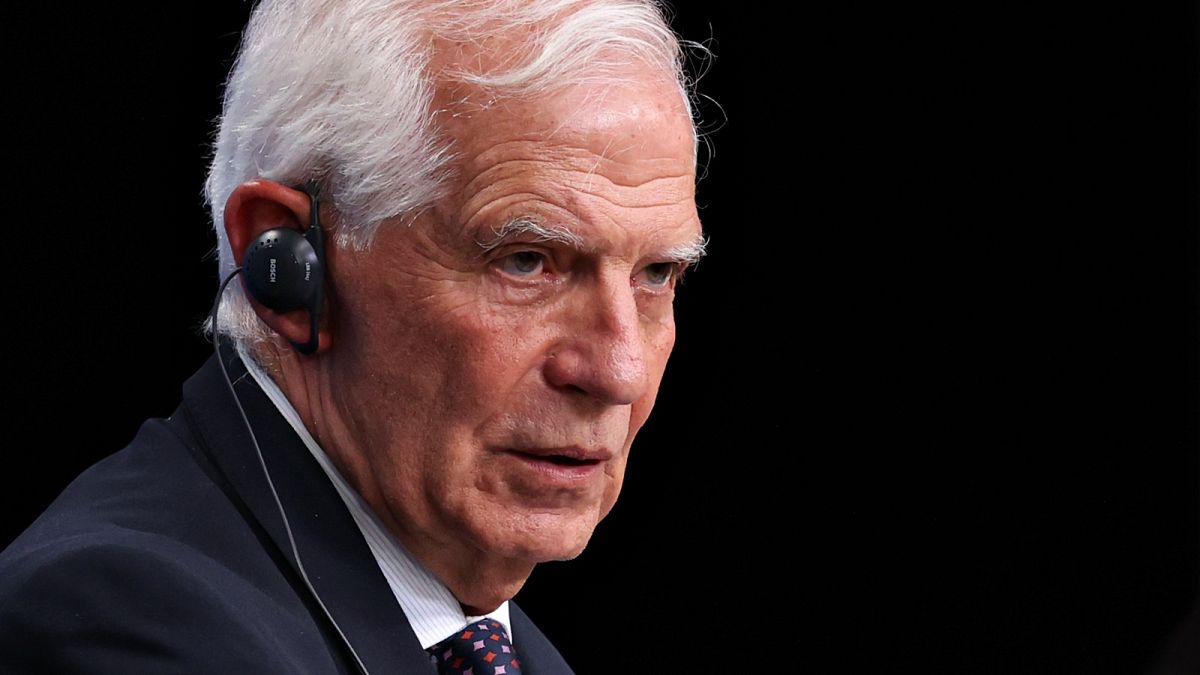The informal meeting of foreign ministers scheduled to take place in Budapest at the end of August will instead be held in Brussels.
Josep Borrell delivered on Monday a blistering rebuke against Viktor Orbán and his self-described “peace mission,” which saw the Hungarian premier travel to Moscow and meet with Vladimir Putin to discuss possible ways to end the war in Ukraine.
The tour, which also featured an equally controversial stop in Beijing to meet Xi Jinping, took place earlier this month, coinciding with the start of Hungary’s six-month presidency of the Council of the EU, but continues to send shockwaves across the bloc.
“Russia is the aggressor in violation of the United Nations Charter and Ukraine, the victim, exercising its fundamental rights to self-defence and there’s nothing of hysteria about that, it’s just telling the truth,” Borrell said after a meeting of EU foreign ministers.
“Any so-called ‘peace mission” that ignores these basic fundamentals is, at the end of the day, only benefitting Putin and will not bring peace.”
The High Representative insisted that Hungary, as a member state, was bound by Article 24.3 of the EU Treaties, which posits all countries must support the bloc’s foreign policy “actively and unreservedly in a spirit of loyalty and mutual solidarity.”
The article, he said, is neither “decoration” nor “empty words.”
“Each member state is sovereign on its foreign policy – true. But as far as they’re members of this club, they have to obey (with) the treaties,” Borrell said. Complying with this obligation “is not something you can do or not – you have to.”
Asked if Orbán’s actions amounted to a breach of the article, he replied: “For me, it’s clear what has happened belongs to the realm of a lack of loyal cooperation.”
‘Purely shameful’
Following days of mounting speculation, Borrell confirmed the informal meeting of foreign ministers, known as Gymnich, that was originally scheduled to take place in Budapest at the end of August would instead be hosted in Brussels. The switch adds to the boycott already announced by the European Commission, which consists of sending civil servants, rather than Commissioners, to informal meetings in Hungary.
Formal meetings of the EU Council are spared as their organisation does not depend on the rotating presidency’s holder.
Borrell took particular issue with the claims made publicly by Orbán and his foreign minister, Peter Szijjártó. Both have repeatedly complained about the bloc’s continued supplies of weapons and ammunition to Kyiv, disparaging this as a “pro-war policy.”
“The only one who’s pro-war is Putin, who is calling for the Ukraine partition and rendition as pre-conditions for any talks and any ceasefire,” Borrell said.
“If you want to talk about the ‘war party,’ talk about Putin. Not about the European Union.”
Throughout the press conference on Monday evening, Borrell refused to use the word “boycott” to describe his decision and insisted the Hungarian representative would nevertheless be invited to the Gymnich meeting in Brussels.
“We have to send a signal, even if it’s a symbolic signal, that being against the foreign policy of the European Union and disqualifying the policy of the European Union as the ‘party of war’ has to have consequences,” he added, noting the strong criticism labeled at Orbán’s actions had been echoed by 25 members states with “one single exception,” widely considered to be Slovakia, which shares Budapest’s viewpoint.
The foreign policy chief took the opportunity to denounce, once again, Hungary’s perennial veto of the bloc’s military assistance for Ukraine, which currently affects €6.6 billion in reimbursements.
“Member states insisted that this was something unacceptable and terrible, but unhappily, the situation of blockage remains,” he said.
Borrell admitted he had “lost the hope” that Budapest would soon change its mind and warned the absence of reimbursements could disincentivise some capitals from providing Kyiv with further military assistance.
“Today I said: this is shameful,” he said. “Purely shameful.”

